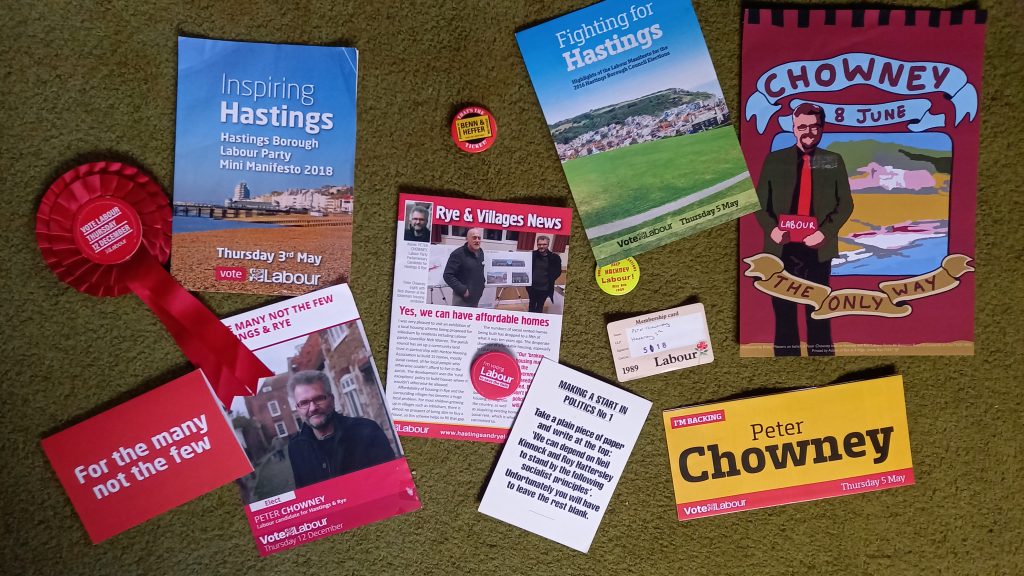
It’s March 1981, and I’m in a tower block lift in Isleworth that smells of wee and despondency. I have just spent a fruitless hour canvassing for the GLC elections, for a local candidate whose name I can’t remember. Not a single person even answered their door.
And that was my introduction to the Labour Party, having just joined, enthused by the thought that Labour could take control of the Greater London Council and bring in some genuinely socialist policies. Which of course, they did, remaining a proud bastion of municipal socialism until the Thatcher government, realising they couldn’t defeat us democratically, decided to abolish the GLC instead. There was hope too in the future of the Labour Party, with the left in the ascendency. These hopes crescendoed with a party conference that would have elected Tony Benn as leader, had it not been for the votes of four MPs who, having achieved the election of Neil Kinnock as party leader, promptly left to form a new centre-right political party. Kinnock was a disappointment, failing to support the miners with any degree of commitment during the 1982-83 strike, later admitting his hatred of Arthur Scargill, the president of the National Union of Mineworkers. He offered no encouragement for those of us who spent freezing hours that winter on picket lines – for me, mostly at Tilbury power station.
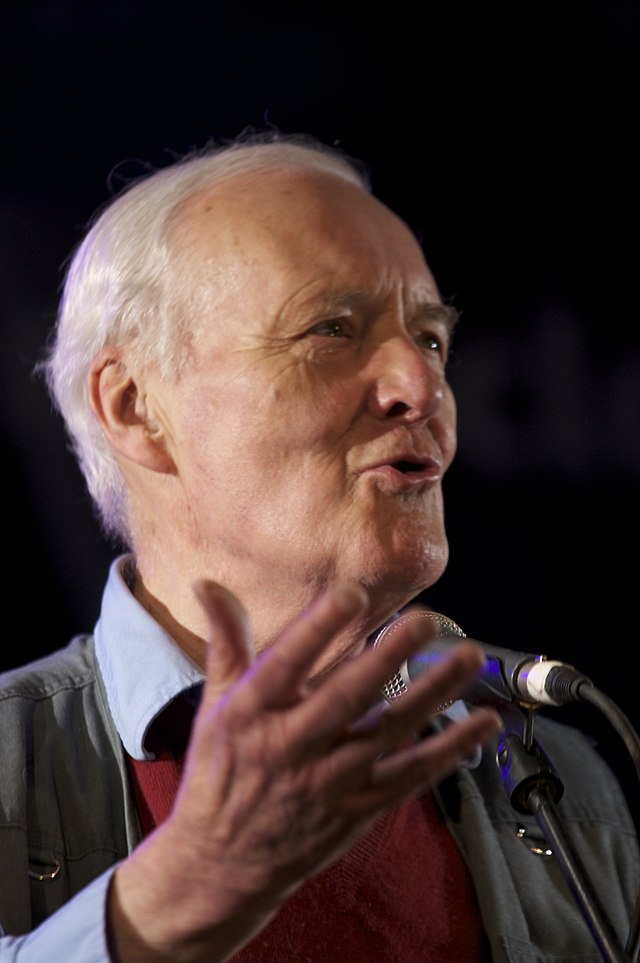
Despite these setbacks to the ideological alignment I adopted, I remained a Labour Party member. We watched on while the Thatcher government systematically dismantled the country’s manufacturing economy in order to destroy the trade union movement, with little effective opposition from Labour. Keen to do what I could, I stood in the 1986 Hackney council elections and the good people of Northwold Ward elected me as their councillor. Actually, that’s not quite true. The Conservative candidate messed up their nomination papers and I was elected unopposed. Nevertheless, I took on the role of Chair of the Housing Committee. That wasn’t easy. Labour Party meetings could be boisterous and disagreements were vigorously expressed. I was once threatened with knee-capping by a former IRA activist turned Labour councillor, but he was another socialist so that was OK. Or so we thought within the somewhat wonky reference points of the 1980s.
There were further attempts by Neil Kinnock to take on the left, and his attack on the Militant Tendency, in Liverpool Council, was uncomfortable, to say the least. But Militant were a bit dodgy when it came to issues of gender, race and sexuality. So we got through that too, doggedly sticking with the party as it transformed into ‘New Labour’, like a phoenix that had left its heart in the fire.
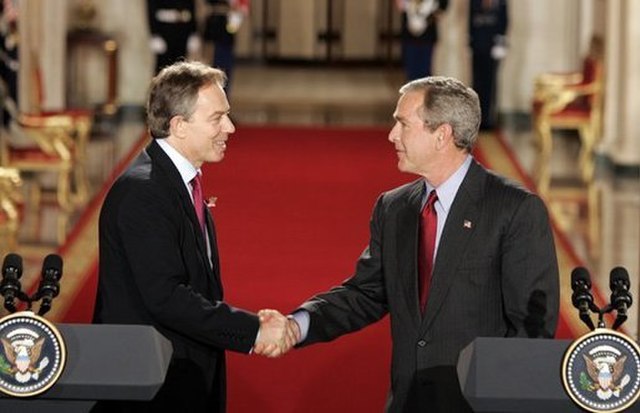
I was less active after I moved up to the Midlands at the end of the eighties, but still went to meetings, went out canvassing, and stuck with the party through the Blair years. I celebrated the 1997 election victory, and continued to go out and persuade everyone to vote for ‘New Labour’, albeit somewhat apologetically, for the next 13 years of acquiescent disappointment. Yes, there were high points. The abolition of Thatcher’s shameful ‘Clause 28’ that made it a criminal offence to ‘promote homosexuality’, the introduction of progressive equalities legislation, and an overall increase in public spending, particularly for local government, were all high points. But the failure to abolish the Thatcher government’s anti-trade union laws, the failure to renationalise privatised public services, the failure to reintroduce security of tenure for tenants in private rented housing, the institutionalised use of the private sector to bolster the NHS, and of course Blair’s catastrophic involvement in the Iraq War, all made it hard to be full of enthusiasm for everything our Labour government did, or failed to do.
Throughout those Blair years, socialists were a minority in the party. But we were tolerated, and there were plenty of opportunities within party structures for the left to have their say. Party members on both the red and not-so-red ends of the political spectrum referred to the Labour Party as ‘a broad church’, where all those on the democratic left were welcome. My bit of the congregation might have been confined to a side chapel with a very thick curtain between us and the Blairite preachers, but we were still there, and just now and again we got to twitch the curtain.

I moved to Hastings in 1996, and despite vowing never to be a councillor ever again after my experiences in Hackney, I gave in pretty quickly, getting elected in 2000. And apart from a couple of years off, courtesy of the electorate, I remained on the council till last May. Through much of that time, I was in the cabinet in various roles, and council leader for five years. Labour lost the general election in 2010, and the Tories took us into 13 years of austerity, slashing the annual support given to Hastings Council from nine million pounds a year to nothing. With the election of Ed Miliband as leader, narrowly defeating his right-wing brother, there did seem to be a new hope. The 2015 election manifesto wasn’t bad, but the disastrous ‘Ed Stone’ unveiled in Hastings put paid to any thoughts of victory and led to a Daily Mail journalist lurking in my front garden because he’d been told I knew where it was. I didn’t, of course. But it made a nice rockery.
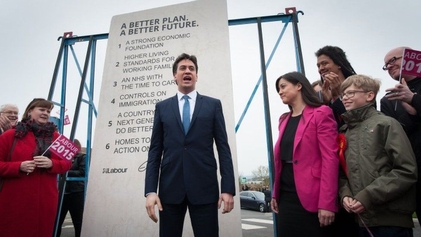
Then the unimaginable happened. With the byzantine and incomprehensible electoral college system for electing party leaders replaced by a one-member-one-vote election, the party membership elected rebel socialist Jeremy Corbyn as leader. And suddenly there was hope again. For the first time since I’d been in the party, young people were joining in Hastings & Rye, hundreds of them. The membership of Tressell Ward, which I represented as a councillor, went from nine to over a hundred. When Theresa May called a snap general election in 2017, a manifesto was quickly assembled that was radical and worthy of a socialist party. It was the first one in all those general elections since I’d joined the party that I could wholeheartedly support. Which was just as well, because I was selected as the Labour Parliamentary candidate for Hastings & Rye. That campaign was a magnificent experience. It started slowly, I didn’t think I had a chance. But as election day drew closer, it looked like we could actually win, despite the refusal of Labour staff to give us any practical support. We didn’t win, but I did come within 346 votes of defeating Amber Rudd, the then Home Secretary.
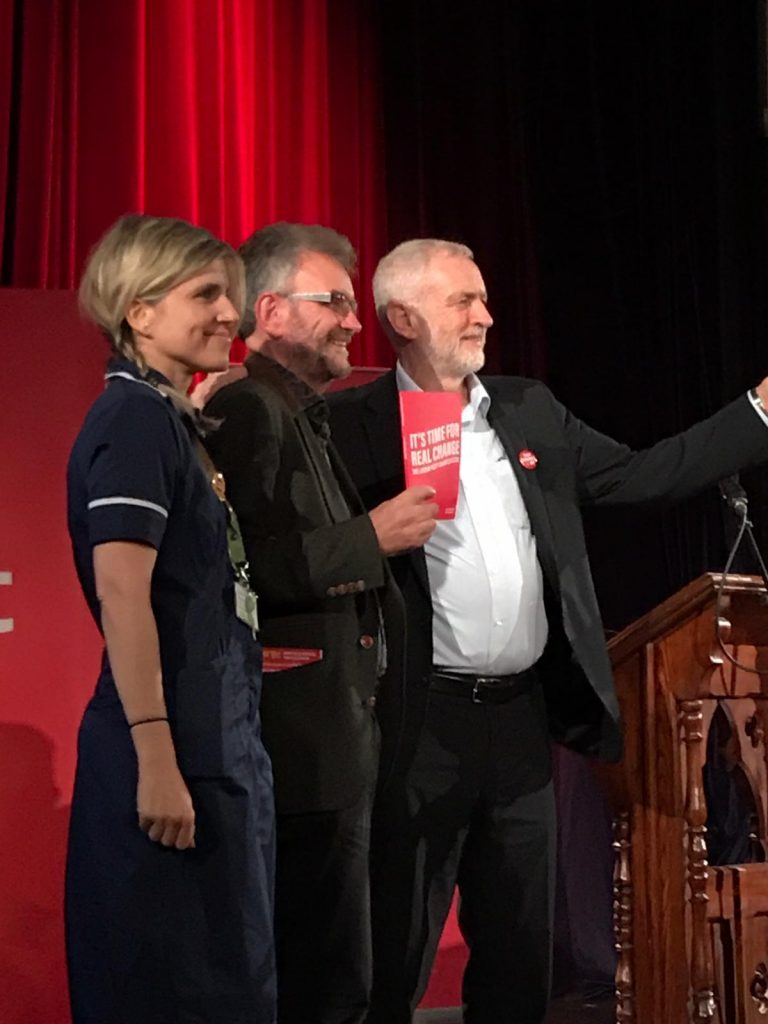
In 2019, we went through it all again. But this time, we could feel from the start that it wasn’t going to work. The press had got their act together, they had time to prepare the systematic demonisation of Jeremy Corbyn. They made this personal. It’s now well-known that senior Labour Party officials actively worked to assist them, to make sure a left-wing government would not be allowed to take power under any circumstances. And yes, there were mistakes made by the Corbyn team: a manifesto that had just too many promises, and a failure to deal with antisemitism complaints that allowed the press and the right of the party to weaponise antisemitism against Jeremy Corbyn’s campaign. And then there was Brexit. We’d managed to deflect that in the 2017 election, to focus on the economy, the NHS, education, housing, pensions … issues that really did affect people’s lives. But in 2019 there was no stopping the hate-fuelled juggernaut that Brexit had become. Driven relentlessly by serial lies in the right-wing press about how much we’d save and prosper out of Europe, support drained away from Labour like sand in a broken hourglass. I stood on a committed remain platform – and lost by 4,000 votes.
It was inevitable that we were going to lose, and that defeat left many Corbyn supporters in the party wondering whether it would ever be possible to elect a broadly socialist government. Perhaps the priority was to get rid of the Tories. In the leadership election that followed, many Corbyn supporters decided to vote for Kier Starmer on the grounds that he’d made a series of promises in a letter to all party members, including a commitment to ‘common ownership’ of rail, mail, energy and water, a commitment to abolish Thatcher’s trade union laws, support for the Green New Deal from the 2019 Manifesto, and a Prevention of Military Intervention Act to stop the UK getting involved in ‘illegal wars’ – an apparent reference to Tony Blair’s involvement in the Iraq War. These ten promises were enough to persuade many Corbyn supporters that Kier Starmer could be a worthy successor to Jeremy Corbyn. He had, after all, been a loyal member of Corbyn’s shadow cabinet, and had fully supported the 2017 and 2019 manifestos. They weren’t quite enough to persuade me, being suspiciously vague in places, but I was tempted.

As soon as Kier Starmer took over as Labour Party leader, he started rolling back on the promises, like a prophet leading his followers to a promised land that had never existed. He’s now admitted that all ten of his promises have been scrapped, along with the 2019 manifesto, and that he’ll be ‘starting from scratch’ with Labour’s manifesto for the next election. The reason he gave was the state of the post-Covid economy, which doesn’t make much sense as most of Starmer’s ten promises, and the commitments in the 2109 manifesto, were there to boost the economy. This rapid U-turn on the pledges he made to get Labour Party members to vote for him was reinforced by his choice of shadow cabinet team. Despite saying he would work to unite the party, the few left-of-centre shadow ministers he initially appointed were quickly dismissed, and replaced entirely with those on the right of the party. Many of these new shadow ministers had campaigned openly against Jeremy Corbyn while he was leader, and had consequently damaged Labour’s chances of getting into power.
Such a comprehensive bonfire of policy commitments to party members, and to the wider public, would have been bad enough, and might well have made me reconsider my party membership. But policies can be changed, and we’ve yet to see anything like a coherent set of Labour policies, the result of this ‘starting from scratch’, to emerge. I would have waited to at least see some kind of a manifesto before leaving, if that had been my only disenchantment. I put up with weakly disappointing policies throughout the Blair years, after all, although I was disinclined to go through all that again.
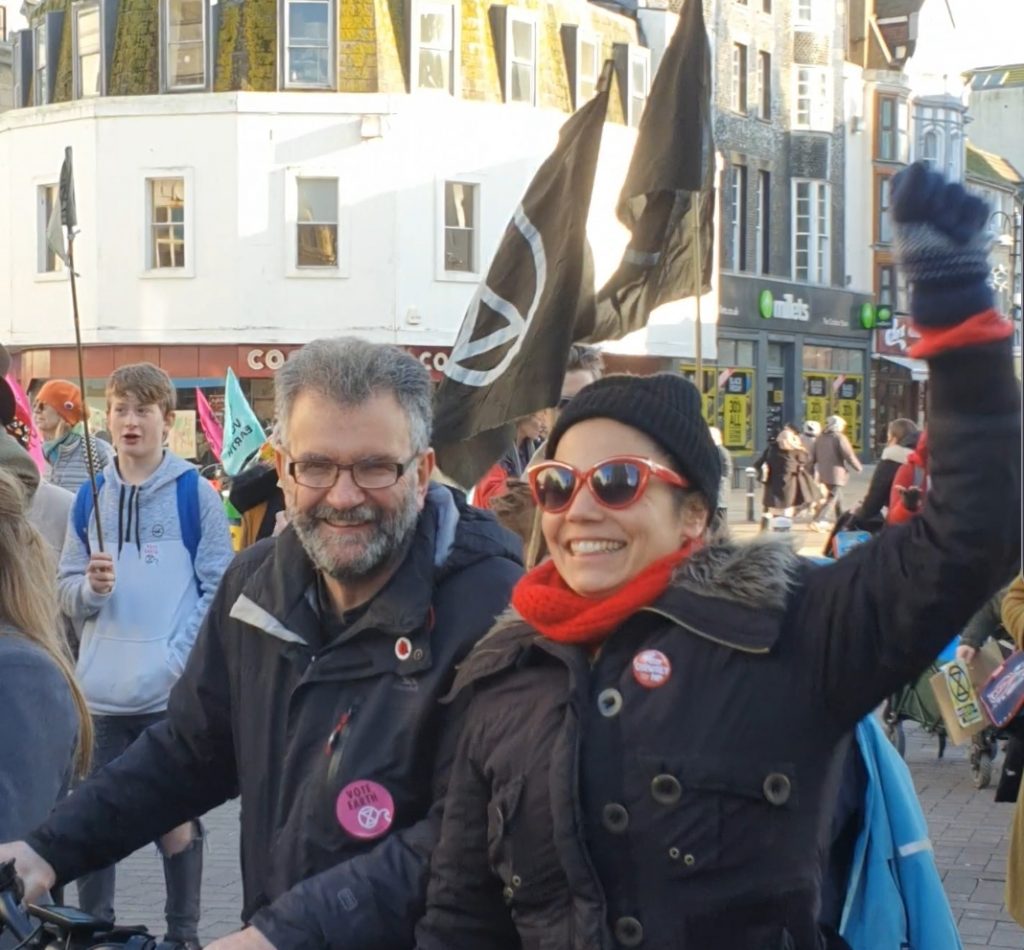
Then there was the farcical selection of the Hastings & Rye parliamentary candidate. I certainly wasn’t interested in doing it again, so wasn’t part of this surreal charade. Normally, drawing up the longlist and shortlist is done by the local constituency party. That wasn’t allowed in Hastings & Rye. As has become increasingly commonplace, the regional and national party simply set aside its own rules for parliamentary selections and drew up a list centrally, without any reference to the local party. None of the applicants who were party members in Hastings & Rye were even allowed onto the long list. That included a former deputy leader of Hastings Council as well as the current deputy leader. None of them was told why they weren’t allowed onto the shortlist, beyond being ‘unsuitable’, nor could they find out why they were unsuitable. There is, it seems, an alternative rule book in use now by the party. No-one outside a small cabal of Starmer acolytes is allowed to see it, but it appears to be a cut and paste rehash of a Kafka novel. So the selection meeting had a choice between three candidates: someone whom no-one had heard of, circulated no information about himself, and didn’t turn up to the selection meeting; a competent but ultimately right-of-centre Rother District councillor; and a parachuted-in candidate picked by central party officials who had never lived in the constituency and had no connection with it. Not surprisingly, not many bothered to vote, although Labour Party candidate selection ballots usually have a dismally low turnout. The Starmer-side candidate won, who certainly wasn’t the local candidate that most party members wanted.
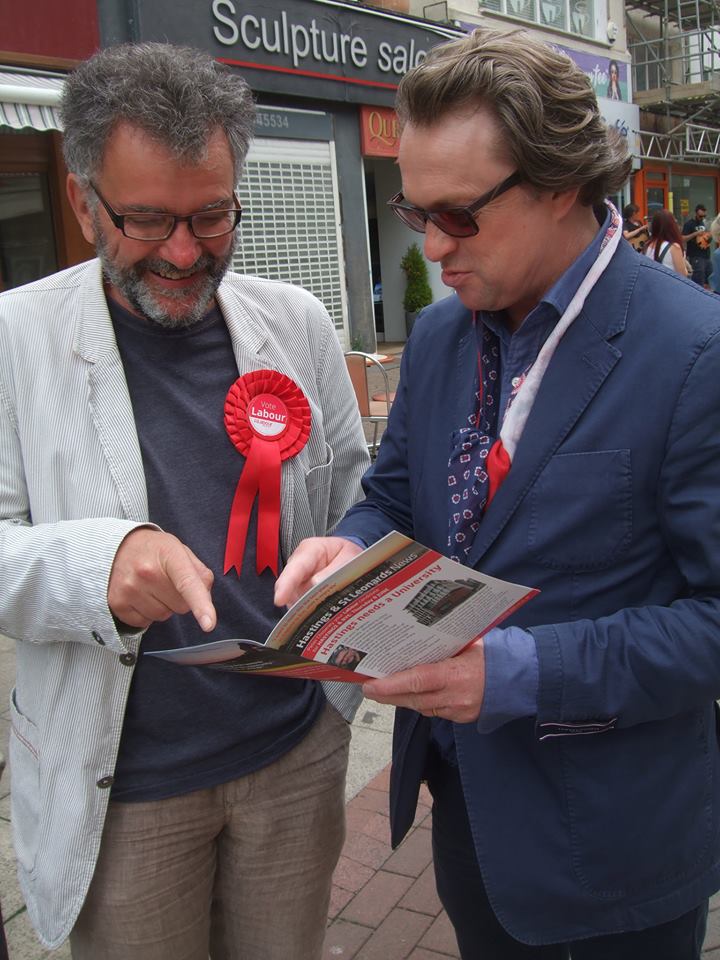
But the real reason for my departure was the venomous campaign of persecution that party officials have been carrying out against the left of the party since Starmer was elected as leader. His vicious betrayal of Jeremy Corbyn in particular has been painful to witness, but it’s also the victimisation of ordinary party members that has been so brutal. Many of the people who campaigned for me in my general and council election campaigns have now been expelled from the party. And many others have left in disgust. Most of them had, like me, been in the party for decades, working for Labour leaderships from Jim Callaghan to Jeremy Corbyn. They did this out of loyalty to the Labour Party, whether or not they agreed wholeheartedly with the manifesto policies. Like me, they trudged the streets year after year to knock on doors, trying to persuade dubious electors that Tony Blair really would make a good prime minister. Even if we didn’t entirely believe it ourselves, we believed he was better than the alternatives.
These expulsions have largely been for the most trivial and irrational of reasons. Most commonly, because the victims of this persecution programme shared or ‘liked’ a social media post from an organisation that has since been ‘proscribed’ by the Labour Party, but wasn’t at the time they liked or shared the post. That seems to be well outside the rules of natural justice, a thought that no longer appears to bother the Labour Party. Most disturbingly, almost all the former members I know who have been expelled were Jewish. According to figures compiled by Jewish Voice for Labour, you’re five times more likely to be expelled from the Labour Party if you’re Jewish. And this from party officials and senior Labour politicians who attempted to label Jeremy Corbyn as antisemitic. One local Jewish party member, a comrade who’d been a committed campaigner and councillor, died from a condition that was probably brought on by the stress of fighting his expulsion from the party. It was a fight that he continued for over a year, before losing the fight. For his party membership, and for his life.
This struggle to constrain the party membership to a particular narrow view of Labour politics, using such ruthless, antidemocratic and Machiavellian tactics, made me realise that the Labour Party is no longer a comfortable home for democratic socialists. It has gone from being a broad church to the narrowest of evangelical sects, where meaningful debate is no longer allowed, and where any expression of an opinion not authorised by the leader and his acolytes is forbidden. Just the click of approval for a progressive group that doesn’t have the leadership’s blessing gets you chucked out. No virtual gratitude, not even an insincere so-long … you’re just gone. Unless of course you are one of those acolytes, in which case you can get away with a history of near-psychopathic tweets without any sanction at all.
All this left me seriously contemplating my standing in the Labour Party. I’d never had any special loyalty to the Labour Party as an organisation, it was a means to an end. If I want to drive to Brighton and the car’s broken down, I might tinker with it a bit to get it going, but there’s no point in just sitting in a broken car hoping it might get me there one day.
Besides, why hadn’t I been expelled yet? Had I really failed to support any decent radical causes on social media, ever? Was I so unimportant that they hadn’t got around to me yet? In the end, I decided to save the faithful the trouble of all those hours picking through my social media history, and resigned. I didn’t do it with a bang, a furious condemnation at the local Labour Party General Committee, a letter to the leader enclosing my snipped-up membership card. It was more of a disappointed sigh as I cancelled my direct debit and allowed my membership to lapse, like a mouse slipping sideways out of the sewer.
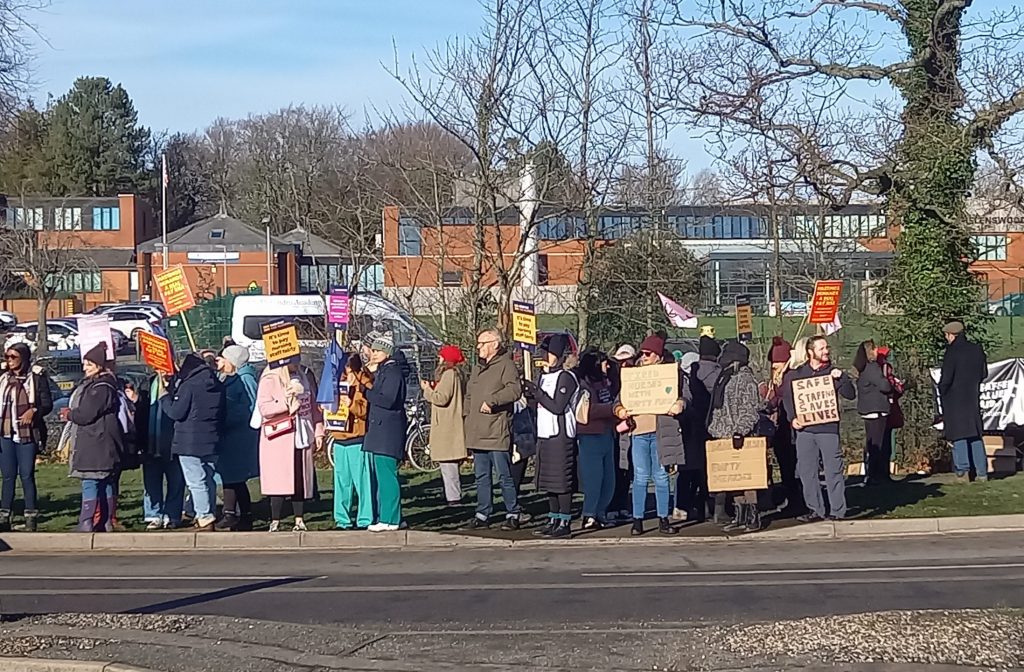
So what now? When I go to picket lines and rallies in support of workers in struggle, I meet many familiar faces who are no longer in the Labour Party either. And we all say: what now? I’m still a trade unionist, of course. I was in Unite and its predecessors long before I joined the Labour Party. I have a fifty-year record there, since I first joined ASTMS when I Ieft school. I’m no anarcho-syndicalist, but maybe supporting workers in struggle is the way forward, for now. Has the Labour Party had its day? I don’t know. Probably not, and I would consider re-joining in the event of some brighter future. But right now, I feel that we need a new socialist party, one that can appeal to disillusioned workers, young people and all those struggling to survive in this post-Brexit social and economic wilderness. A party that recognises climate change as the most important issue we’re facing, that’s not afraid to tackle the ludicrous inequalities of wealth and opportunity in this country, one that can be supported by trades unionists, environmentalists, and ordinary working people, one that practices equality, compassion and fairness in both its policy-making and its own operation, one that isn’t afraid to come up with a radical agenda with which to take on the Tory media.
But for that to succeed, we need proportional representation. Only the UK and Belarus in Europe still use a first-past-the-post system for parliamentary elections. Getting rid of this parody of democracy, where it takes 38,000 votes to elect a Conservative MP, but 866,000 to elect a Green MP, has to be a priority. The Labour Party has endorsed PR as its policy at conference, although the leadership seems intent on ignoring that. But it will come, eventually. That could generate a new interest in politics, especially amongst younger voters. It could stop people being so despairing of the democratic process and the impotent shambles it gives them. And that can only be a good thing.
So I’m off. I was out there knocking on doors to gather Labour votes before most of the shadow cabinet were an innocent blastocyst. But if there’s one thing the Labour Party’s dissembling descent into an ideological cult has achieved, it’s the release of so many free-thinking people who no longer see it as their spiritual home. Now perhaps we can move on.

Well said Peter.
Can’t seem to reply to this poignant post so replying here. Thanks Peter for explaining why no one should ever vote Labour again. Or at least not do so without washing their mouth afterward. It is a terrible organisation and a tragic situation that this body is supposed to represent progressives and democrats in this failing state. Hit the streets, support the unions, and do all the things locally to support your community as the we have idiotic psychos in charge.
A great and very thought provoking read!
Feel quite dismayed reading this, where do we go now?
I don’t know exactly! Any ideas?
I am Warren Davies’s father. I keep emailing Labour HQ to ask them to confirm my expulsion and exactly why as I have only been told of expulsion but not given a reason. My local Branch have not been advised other than the fact that my name no longer appears on their membership list and I do not receive minutes. 🤗
Hi Eric – sorry, didn’t know your first name, only that you were Warren’s father! I think your experience is pretty much par for the course, if you’ll excuse the cliche. It’s probably for doing something very trivial that you don’t even remember, but you might never find out.
Excellent piece.
Almost entirely echoes my own reasons for leaving Labour. I too am politically homeless. I go to support picket lines for now but indeed, what next? I don’t know either but I’m sure that if such an opportunity to progress shd show itself soon, there are thousands like you and me waiting in the wings to give it 100% of our wasted energy ❤️💕⚡👊
You do indeed go to lots of picket lines! Makes me realise I should try harder to get to more of them – there are plenty to go to. But if you come up with any ideas about what we do next, let me know …
I’m sorry to read this and that it’s come to this. I fully understand your feelings and there are others I know that may well join you
A really interesting read Peter and a great description of your Labour Party journey from the beginning to end. No answers to what happens next and sad that what was a brilliant left wing Hastings and Rye CLP has been destroyed. Solidarity ✊🏼
100% – although it is worth emphasising that the failure to deal with antisemitism – was a) because the old bureaucrats sat on cases and, perhaps even more importantly, b) antisemitism was weaponised and exaggerated to attack Corbyn and all of us who supported the ideas. Not sure how “proud” I am of being the first JVL Exec member to have been expelled – for retrospective “crimes”….and this lack of natural justice does not bode well for a government led by SKS…..and now the Party has threatened to expel a Holocaust survivor, Stephen Kapos, ironically a member of Starmer’s own CLP, for daring to speak at a meeting organised by a group that has now been proscribed! And yet, they claim to have dealt with antisemitism – I doubt that he would have been expelled for speaking to a Tory meeting, which he would also, most probably, have done if asked to speak about what he experienced and why it still matters .
I think it is also worth emphasising that the apparent failure to deal with antisemitism was not only because the levels of antisemitism were sometimes false and, more often, exaggerated – or as Formby revealed, like Margaret Hodge’s 200 complaints were only 20 of them referred to Labour Party members. Also, of course, because the bureaucracy simply sat on the cases to discredit Corbyn.
Now these allegations have reached even more ludicrous heights (or depths) with the threat to Stephen Kapos, a Holocaust survivor (and also in Starmer’s own Constituency Labour Party, for daring to speak at a meeting to commemorate the Holocaust, draw lessons, etc because it was organised by a now proscribed group. Jewish Voice for Labour will shortly publish his letter of resignation and links to other recordings. (30.01.23)
Yes, I probably should have made it clearer that the failure of the left was to deal soon enough with the bureaucracy that wasn’t dealing with the anti-semitism complaints.
Sorry to see you go Peter. Despite what you say I will continue to vote Labour. We do have a good candidate in Helena, and the choice is between her and Sally-Ann / Tory austerity. I’m excited by Helena and what the investment a labour victory could mean for our community.
Thank you for this eloquent piece, as long as all the years you’ve spent campaigning for a better world. I did some campaigning for Labour (and you!) in Hastings in 2019, along with several others based in Eastbourne. I’m still hanging on as a member, although I rethink that decision about once a week. My decision to join Labour was based on the need for urgent action on climate justice and inequality, and the current leadership is lacklustre on both.
As you say, we urgently need PR, another topic the leadership seems keen to ignore. Anyway, this is beautifully expressed, and I just wanted to say thank you for your thoughtful input on this issue, as on so many other occasions. Best of luck as you move on!
Thank you Liz, much appreciated!
Thanks for writing this Peter. It’s so frustrating to think of how much hope we had in 2017 (the interviews were great fun!) and compare it to how lost we are now. I can’t see myself voting Labour in the near future and it feels so very isolating.
But, we must show we’re still here supporting the workers who’re suffering so much under this govt. and maybe by doing so we can shape something positive for the future.
I was so proud to vote for you and I’m equally proud to know that you are a man of your word by leaving the party and standing true to your beliefs.
There is no progress without struggle and that’s so very true right now.
Well said, Peter! But it still feels odd not to be a member – of anything much, apart from my union.
I know what you mean – I’m a member of National Trust and the Romney, Hythe and Dymchurch Railway Society, but they just don’t quite fulfil the need somehow, I’m a member of a few other things too, some of which are political, but none of which has given me much hope, at least not yet…